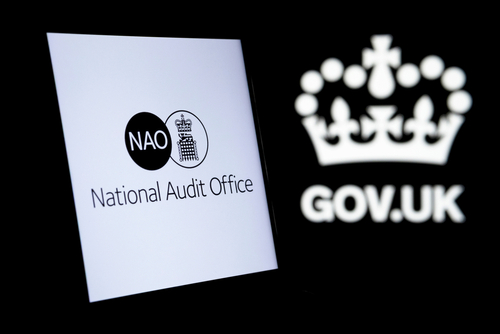
A new report has highlighted the amount of strategic work still required if the UK government is to fully harness AI.
‘Use of artificial intelligence in government’, published by the National Audit Office (NAO), examines how prepared the UK government is to maximise AI potential. Issues surrounding senior leadership over AI deployments, updating technology from legacy systems and data, and bridging the AI skills gap for successful implementation of technology are among the challenges the report highlights as needing to be overcome if the government is to fully unlock AI benefits.
The government must ensure an ambitious overall programme and “realistic plan” for necessary skills, funding, and the enablers involved, the NAO said.
The NAO surveyed 87 government bodies, including the main government departments and the majority of bodies with annual operational expenditures over approximately £83 million. They provided information about AI deployment and future plans, and responded to other questions around barriers to adoption of AI and support needed. While only 21% of respondents said they had an AI strategy in place, a further 61% had plans to develop one.

Tackling challenges with an effective AI strategy
In 2023, the Central Digital and Data Office (CDDO) of the Cabinet Office worked with the Department for Science, Innovation & Technology (DSIT) to kickstart the development of an initial strategy for the widespread adoption of AI in the public sector. The draft strategy mandates all government departments to produce their own AI adoption plans to be reviewed and costed by June 2024. The strategy outlines a plan to identify common capabilities to be used by several organisations and can be adopted at scale following successful testing.
70% survey respondents reported that skills were a barrier to AI adoption in their organisation due to difficulties in attracting and retaining staff adept in AI and tech.
In April 2022, there were 3,900 digital, data and technology vacancies, rising by 7% to 4,100 by October 2022, the report said. “One way in which government bodies address this skills shortage is by using contractors, agency workers, and temporary staff, with estimates from autumn 2023 indicating that approximately one-third of digital and data professionals in the civil service is made up of these groups.”
Improving the government’s ability to implement AI by closing the skills gap feeds its aim to position the UK as a global leader in science and technology. Wider efforts to achieve this involve the UK government’s allocation of a £1.1 billion package to upskill thousands of students in technology such as artificial intelligence, involving the training of over 4000 students at 65 centres for doctoral training across the UK.
In February 2024, the Deputy Prime Minister, Oliver Dowden MP, gave a speech on AI for the public good including what UK government is doing to invest in it. In light of the speech, a government spokesperson said: “Artificial intelligence has the potential to revolutionise public services and boost productivity,” addressing how the government is finding new ways to harness AI while bringing more AI talent into government. “We have invested over £3.5 billion in the technology in the last 10 years, and are currently more than doubling the ‘Incubator for AI’ team, recruiting the best of British talent to drive AI integration across the public sector.”
Updating technology and data to train AI
The report also cited that updating legacy systems and improving data quality and access is fundamental to exploiting AI opportunities, “but will take time to implement”. Limited access to quality data was identified as a barrier to implementing and training AI in NAO’s survey. Improving data access and quality by the government will help departments to avoid limiting AI adoption in the public sector.
The UK government’s 2022-2025 roadmap offers remediation plans to tackle legacy IT systems and processes to identify important data in departments in 2024. In Autumn 2024, department-wide data maturity assessments will begin, to identify strengths, weaknesses and areas of improvement.
Establishing ownership and accountability in AI strategies
The report highlights “risks to value for money” if the UK government does not establish which departments have ownership and accountability in delivering the strategy for AI adoption in the public sector. Significant changes in business processes and workforce will also be required, as well as further development of responsible and safe adoption of AI, while building on and learning from existing AI activity used by the government.
“Without prompt action to address barriers to making effective use of AI within public services, government will not secure the benefits it has identified,” said Davies.






